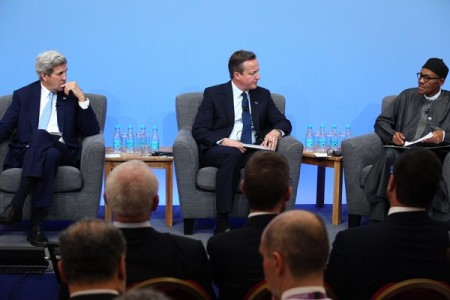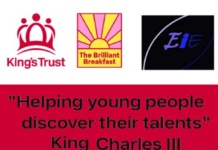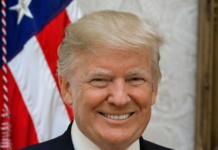Nigeria signed up with world – leading countries to tackle corruption

Nigeria, Britain and all countries participating in the Anti-Corruption Summit in London have all pledged on Thursday, May 12, 2016, to set up public register of company ownership in a collective effort to make it harder to launder the proceeds of corruption around the globe.
The countries signing up including Nigeria are making concrete commitments to tackle corruption and promote transparency in government. UK Prime Minister, David Cameron, announced the measure at the start of the global anti-corruption summit, but critics say, the proposed register may not make a meaningful impact unless tax havens end secrecy as well. Prime Minister’s international Anti-Corruption Summit is aimed to step up global action to expose, punish and drive out corruption. It will boost development opportunities and improve the delivery of life-saving services in many of the poorest countries. New UK partnerships announced at the Summit include: The UK National Audit Office and Nigeria’s Office of the Auditor General working together to strengthen organisational governance and compliance with international audit standards. The National Crime Agency partnering with relevant counterpart agencies in Tanzania, Kenya and Nigeria to strengthen their anti-corruption institutions. The UK committing to an institutional integrity partnership with Kenya to support the development of its financial regulatory bodies through provision of UK expertise. International partnerships commitments made at the Summit also include: Norway strengthening the integrity outcomes in its partnership with Ghana and Tanzania under its landmark Oil for Development programme.
New plans to recover stolen assets
Among a number of major commitments, Prime Minister David Cameron has announced the creation of the first-ever global forum to step up international efforts on asset recovery. The Global Forum for Asset Recovery will bring together governments and law enforcement agencies to work together to recover stolen assets. The first forum will focus on returning assets to Nigeria, Ukraine, Sri Lanka and Tunisia. It will be held in the US next year, co-hosted with the UK, and will be supported by the UN and the World Bank. The forum will strengthen co-operation between the countries that have had assets stolen and the countries where those assets are hidden, and help ensure law enforcement on both sides drive forward vital work to return illicit funds. As well as strengthening our own legislation, the UK has also secured commitments from 20 other countries at the Summit to strengthen or reinforce legislation to ensure stolen assets can be recovered, including Switzerland, Nigeria, France, Germany and Afghanistan. On top of this, 11 countries have committed to develop the first internationally-endorsed guidelines to ensure transparency and accountability in the return of stolen assets. Where money has been confiscated or settlements paid in foreign bribery and international corruption cases, the UK is helping make sure funds are returned to the countries they were stolen from. Recent financial settlements include the return of $7 million to the government of Tanzania. Speaking at the summit the Prime Minister said: “Today we have seen the world unite against a shared enemy. Countries have gone further than ever before in condemning corruption and pledging to drive it out. Together we have broken the taboo on talking about corruption that has existed for too long, and we have pushed this fight to the top of the international agenda, where it can no longer be ignored. This battle will not be won overnight, but if we continue to show the courage and political will to stand against corruption that we have seen today, we can and will defeat it”. The build-up to the event was almost marred by Cameron being caught on camera describing Nigeria and Afghanistan, which are both taking part, as “fantastically corrupt”, but he later said that the leaders of both countries were tackling the problem. U.S. Secretary of State John Kerry, addressing a plenary session at the summit, said that corruption was as much of an enemy as some of the extremists Washington was fighting.
“It is a contributor to terrorism in many different ways and the extremism that we see in the world today comes to no small degree from the utter exasperation that people have with the sense that the system is rigged,” Kerry said. “We see this anger manifesting itself in different forms in elections around the world, including ours,” he said, alluding to the unexpected success of Republican Donald Trump and Democrat Bernie Sanders in the U.S. presidential primaries. France, the Netherlands, Nigeria and Afghanistan would join Britain in launching public register of true company ownership, Cameron’s office said. Kerry said the United States had already announced steps to improve transparency on business ownership. Downing Street said that any foreign company that owns a property in Britain or wants to buy one or to bid for a central government contract would have to join the new register. The aim is to expose those who hide behind obscure shell companies to own properties, a particularly acute problem in London which has been hit by repeated scandals involving luxury homes owned by corrupt foreign politicians and business people. Some critics said the impact of the registers might be limited unless tax havens were persuaded or forced to also open up about who owned offshore-registered companies. “I can’t tell until I’ve seen the details whether this is a PR stunt or a serious policy which will reveal the true ownership of properties here in the UK,” said Margaret Hodge, a member of parliament from the opposition Labour Party who specialises in these issues. The release of the “Panama Papers”, leaked documents from law firm Mossack Fonseca, put tax avoidance at the top of the global agenda by showing the extent to which tax havens were used by politicians and business people from around the world. Anti-corruption protesters who gathered close to the summit venue, some dressed as bankers with bowler hats reclining on deck chairs as they fanned themselves with banknotes, said what was needed was an outright abolition of tax havens. “We just think this has got to the point where ending tax havens have to be done. They serve no useful economic purpose,” said Sally Copley, head of UK campaigns at charity Oxfam. The British Virgin Islands, a British overseas territory that the Panama Papers suggested was home to more than half of the 200,000 companies set up by Mossack Fonseca, was not represented at the London summit. Britain also seized the opportunity of the summit to bring forward plans to introduce a criminal offence for companies that fail to stop employees facilitating tax evasion, pledging to introduce legislation to that effect this year. John Milner, head of business crime and fraud at law firm IBB Solicitors, said this was a step in the right direction in tackling what he called Britain’s “unenviable and growing reputation as a soft touch for laundering dirty money”. However, he expressed doubts as to whether the already stretched white collar crime investigating body would be able to enforce the new rule. In a statement by Nigeria President’s spokesman, Femi Adesina, quoted Buhari as saying that his administration was also taking steps to ensure greater transparency of the ownership and control of all companies involved in property purchase and public contracting. “Nigeria is already collating this information through the Extractive Industry Initiative process and will extend it to other sectors. Nigeria will establish a transparent central register of foreign companies bidding on public contracts and buying property. We welcome the proposal by developed countries to work together to improve the access of developing countries to beneficial ownership information for use in public contracting.” He also welcomed a proposal to restrict the ability of those involved in corruption to travel, invest and do business overseas. “We commit to joining the pilot initiative for automatic exchange of beneficial information. Nigeria commits to deploying public-private information sharing partnerships to bring together governments, law enforcement, regulators and the financial sector to detect, prevent and disrupt money laundering linked to corruption. “We are committed to working together to enhance company disclosure on the payments to governments for the sale of oil, gas and minerals, complementing ongoing work within the EITI. “Nigeria is already reporting progress through the EITI working groups and will continue to work with interested countries to build a common understanding and strengthen the evidence for transparency in this area. “We welcome voluntary disclosures through EITI reporting and by some major companies regarding payments to governments for the sale of oil, gas and minerals. “We welcome the new 2016 EITI Standard, in particular the requirements on beneficial ownership and the sale of the government’s share of production. We will sign up to the Common Reporting Standard initiative. “We are committed to reviewing penalties and other actions against professional enablers of tax evasion, including for corporations that fail to prevent their employees from facilitating tax evasion. “We support the development of a global commitment for public country by country reporting on tax information for large multinational enterprises. We are committed to the strengthening of our asset recovery legislation, including through non-conviction based confiscation powers and the introduction of unexplained wealth orders. “In order to improve on the current legal procedures and ease asset recovery procedures, we have drafted the Proceeds of Crime Bill which provides for the transparent management of recovered funds and assets and a non-conviction based approach to asset recovery. “We will work with others countries, civil society, international organisations to support accelerated implementation of the voluntary provisions of the UN Convention Against Corruption (UNCAC) and we commit to the implementation of the outstanding obligations under the UNCAC. “We support the establishment of an International Anti-Corruption Coordination Center to be managed by National Crimes Agency of Britain. We will work with NCA in promoting this centre in the African region,” the President said. Additional report by Reuters.









